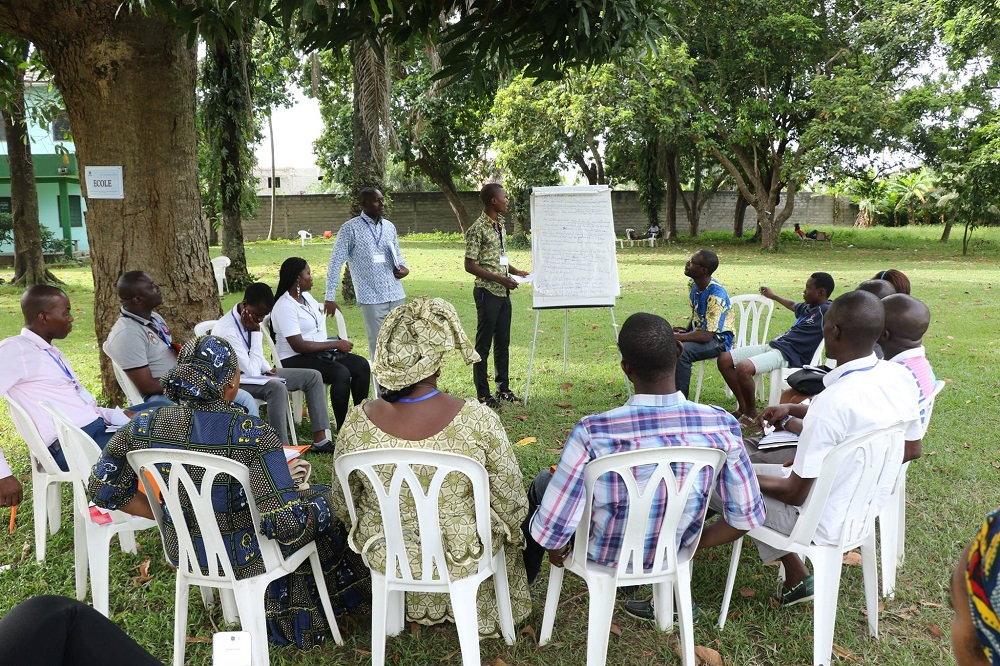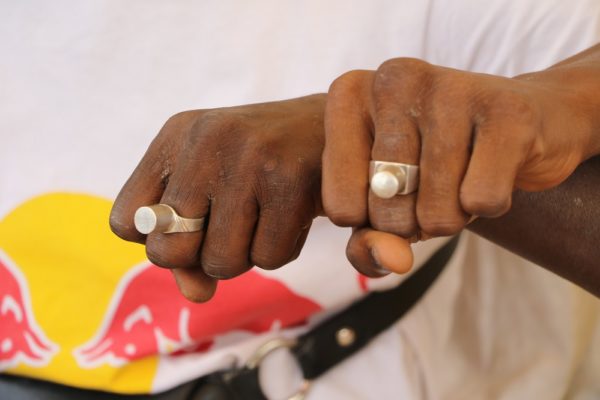Reintegrating violent youths known as “microbes” to mitigate urban violence in Abidjan

“These ‘microbes’ we are talking about, we know them very well. They are our kids, our little brothers, we know them.” - A tailor from Abobo commune.
In the past couple of years, a violent phenomenon that began in the Attécoubé commune in Abidjan, Côte d’Ivoire, has rapidly spread to the neighboring districts of Abobo, Yopougon and Adjamé. Young men between the ages of 12 and 27 join organized youth groups, commonly referred to as “microbes” (germs). These boys are described to violently rob people on the streets and in rare cases, kill their victims. One of these youths described their state of mind: “When we go out, we are like wild dogs. We have to steal, do everything…anything to gain money.” Exclusion, lack of opportunities and inequalities are only a few of the socio-economic factors that create and reinforce the formation of these violent youth groups – stigmatization only perpetuates the conditions which lead to the existence of “microbes.”
Government officials and civil organizations have attempted to eradicate this urban violence phenomena, but with very little success. Civilians argue that police authorities do not have the necessary means to protect them against the attacks by the youth groups. In desperation, communities have gone as far as to organize self-defense actions, which have inevitably perpetuated cycles of violence in their communes.
Some citizens believe that the term “microbe” is not shameful enough to describe these young men, while others find the word appalling. Psychologically and socially, the term “microbe” has a powerful dehumanization effect. Each time community members use this term to describe the youths, they are inevitably building a barrier between them. Consequently, these young men are stigmatized and confined in negative behaviors and identities, which create vicious cycles of violence, where they remain vulnerable and cannot find a way out. “If you call me a microbes, I will act like a microbe” summarizes one youth.
These urban areas in Abidjan are desperately seeking alternative responses, which are adequate to their context. A member of the community said, “It is in our interest, us who live here, to help them. We want to find solutions, yet we do not want to admit that we know them and that we are ready to talk with them. I say and repeat, the police cannot overcome this, but dialogue will.”

Photo credit: Indigo
In November 2015, Interpeace and its partner organization Indigo Côte d’Ivoire, visited one of the sub-districts of Abobo, to begin a pilot project, which seeks to reintegrate the targeted youth back into their communities. Dr. Séverin Yao Kouamé, Sociologist and Coordinator of Indigo Côte d’Ivoire, shares the programme insights that in order to eradicate this phenomenon there must be a holistic approach, which includes a psychosocial, economic and emotional dimension, to work on the kids’ self-esteem, and their capacity to see themselves differently and interact peacefully in society: “All these dimensions that make these kids who they are, should be dealt with. As this ‘microbes’ phenomenon is not only the result of these kids being in conflict or tension with the law, but they are also in conflict with themselves and with the Ivorian society.”
Engaging youth and building strategies from their perspectives are the most effective ways to build trust in a sustainable way amongst these youth groups and society. In order to achieve this, both Interpeace and Indigo Côte d’Ivoire, with the committed support of UNICEF, are working with 40 young men who need recognition from society, economic opportunities, education and a space to express how they see themselves within the society. Through these interactions, we were able to map violent groups in the area and truly comprehend their dynamics, in order to work together and mitigate violence in Abidjan starting with the commune of Abobo.
